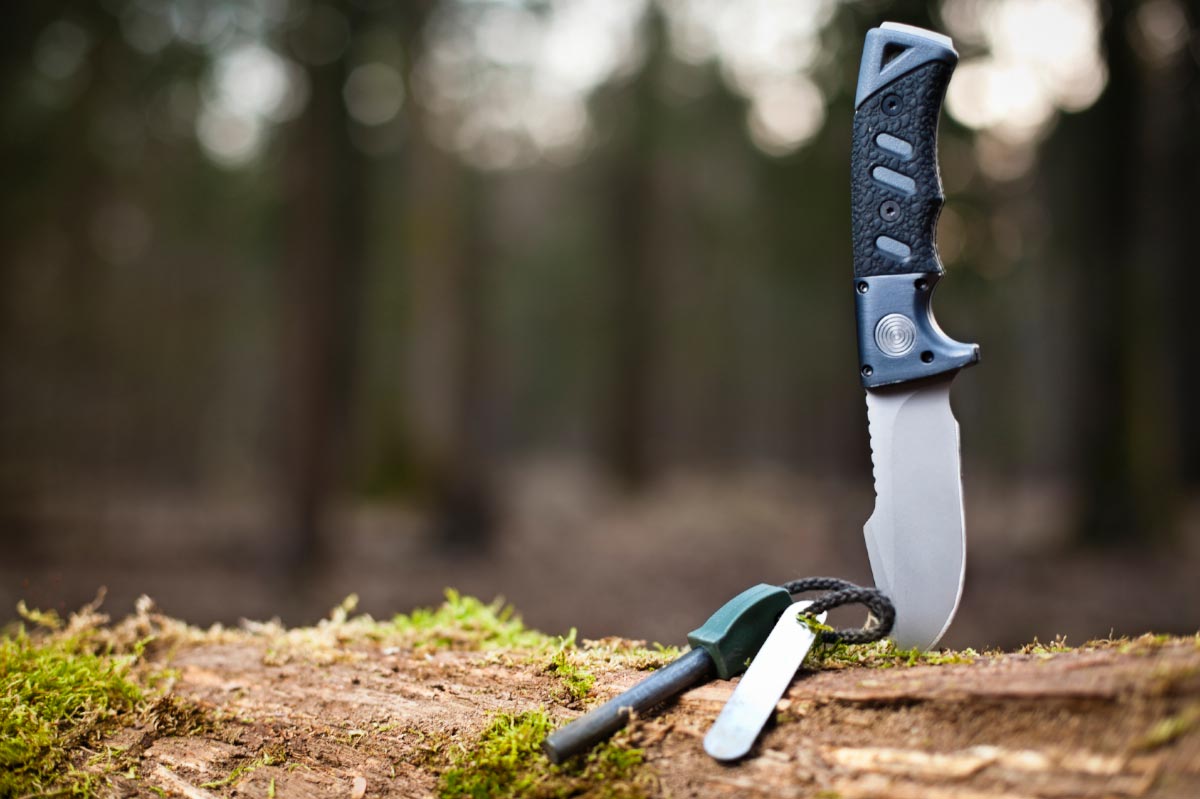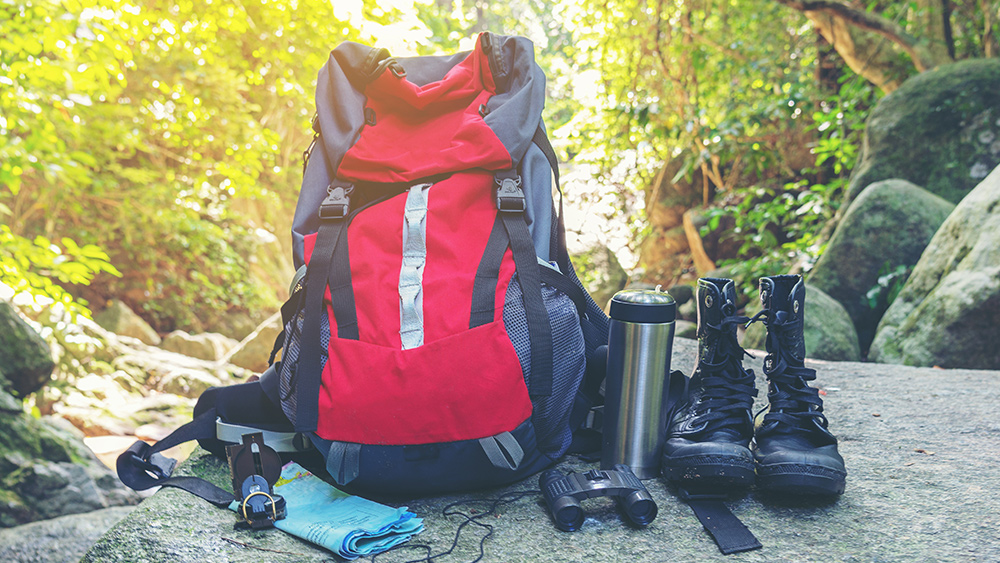
A knife is an essential survival tool for any prepper or survivalist. Picking the right fixed-blade survival knife may spell the difference between life and death when going off-grid.
When selecting a survival knife, consider the likeliest scenarios and uses for it. A hunting knife is excellent in the wilderness, while a more discreet type works better in urban areas.
Always go for a survival knife with a fixed blade. These knives are far sturdier than a folding knife and much less likely to break.
Pick one with a full tang that extends into the handle. The longer the tang, the more strength it imparts into the entire knife.
The blade needs to have a material that retains the edge, resists corrosion, and is easy to sharpen. Either 420HC stainless steel or 154CM custom steel with high carbon serves well. S30V vanadium stainless steel holds its edge very well, but it is difficult to sharpen.
Consider the materials of the handle as well. Micarta, rubber, and textured handles offer a sound grip when wet. Metal and wood grips last longer. Finally, composite combines durability and a good grip. (Related: New survival gear videos from the Health Ranger: Muddy pistols, knife skills and “smart” self-defense training.)
Survival knives for military vets, bushcraft practitioners, budget preppers
There are many fixed blade survival knives in the market. But some of the products stand a cut above the rest.
Best known as the KA-BAR, the USMC Mark 2 Combat knife first entered service in 1942. Most people consider it a combat knife, but its designers intended it to serve as a multipurpose utility tool. The KA-BAR proved itself in harsh jungle environments during wartime conditions and still equips most Marines.
The SOG SEAL Pup Elite Knife gained popularity due to the exploits of its primary user, the U.S. Navy SEALS. Like its Marine counterpart, the SOG SEAL Pup proved its durability and reliability during real combat.
For a pricey but excellent wilderness survival knife, consider the Tom Brown Tracker Knife. Its multi-section blade does the job of three different knives – one section carves, the second part chops, and the third segment is a saw. Combined with its extended handle, the long-bladed Tom Brown knife excels at any bushcraft application. Use it for batoning wood or gutting game animals.
Budget preppers who want an affordable yet capable survival knife may try the Morakniv Companion. Not only is it durable and sturdy enough for survival applications, but it also costs only $30 at most.
Urban and wilderness survival knives
Yes, the makers of the KA-BAR Becker BK2 Campanion spell the last word with an "a" instead of an "o." Outdoorsman Ethan Becker came up with the design of this oddly named survival knife. The thick, wide blade of the Campanion makes it perfect for heavy-duty use as a chopping tool.
Another knife model with an attention-grabbing name is the ESEE-6 Fixed Blade Knife. Suitable for use in both urban and wilderness environments, its carbon steel blade is very tough and keeps its edge well. The Micarta handles may be removed as needed.
Benchmade made its debut in the bushcraft scene with its 162 Bushcraft Knife. It is a workhorse tool with an incredibly durable blade and a G10 handle that maintains its grip in wet conditions.
The KA-BAR Becker Tac Tool is one of the best urban knives in the market. It handles any survival task inside a building, such as prying a door or window open.
Last but not least is the Tops B.O.B. Fieldcraft Knife. This dedicated wilderness survival knife incorporates the collected wisdom of bushcraft practitioners across North America.
Sources include:
Please contact us for more information.





















